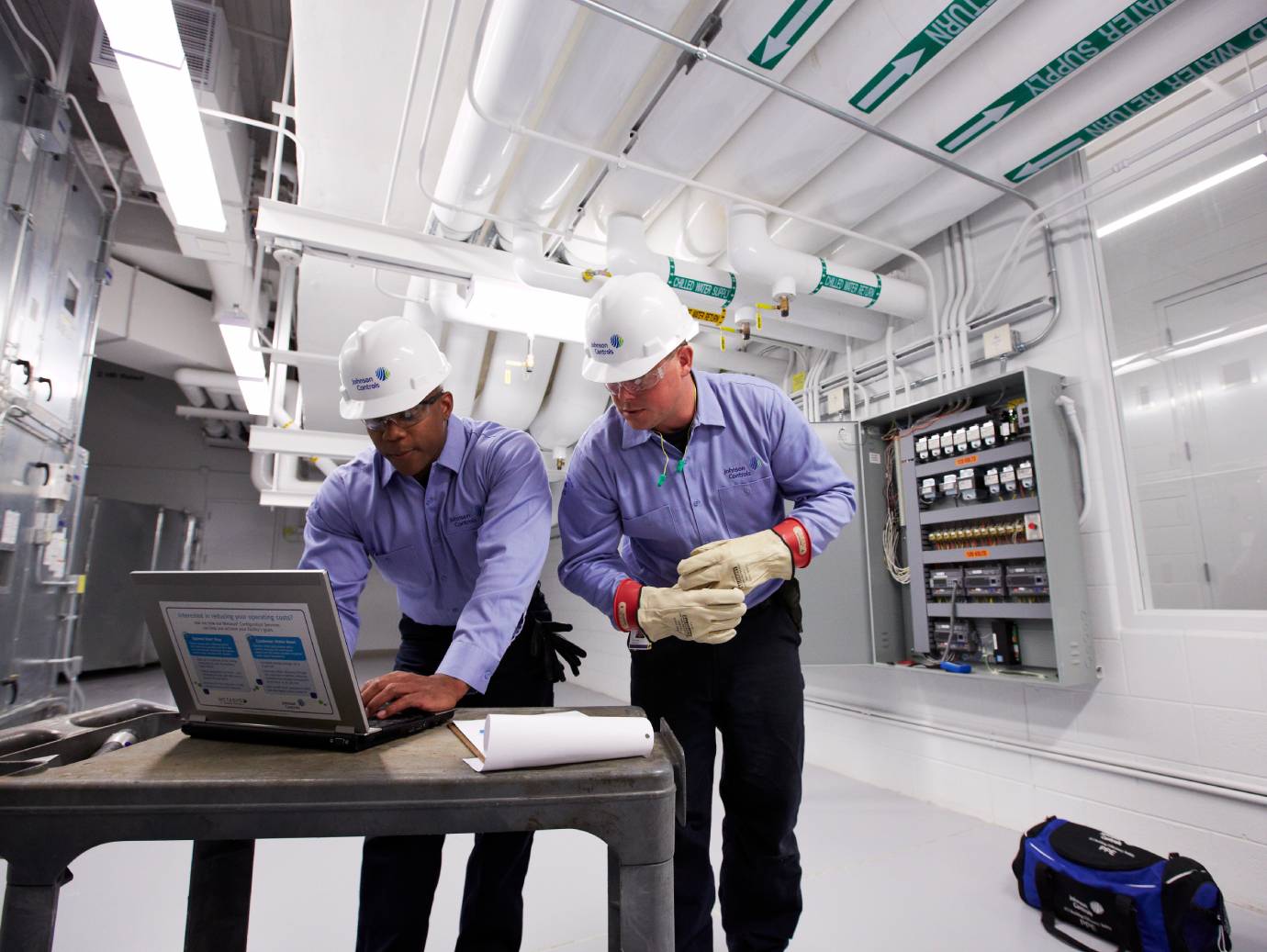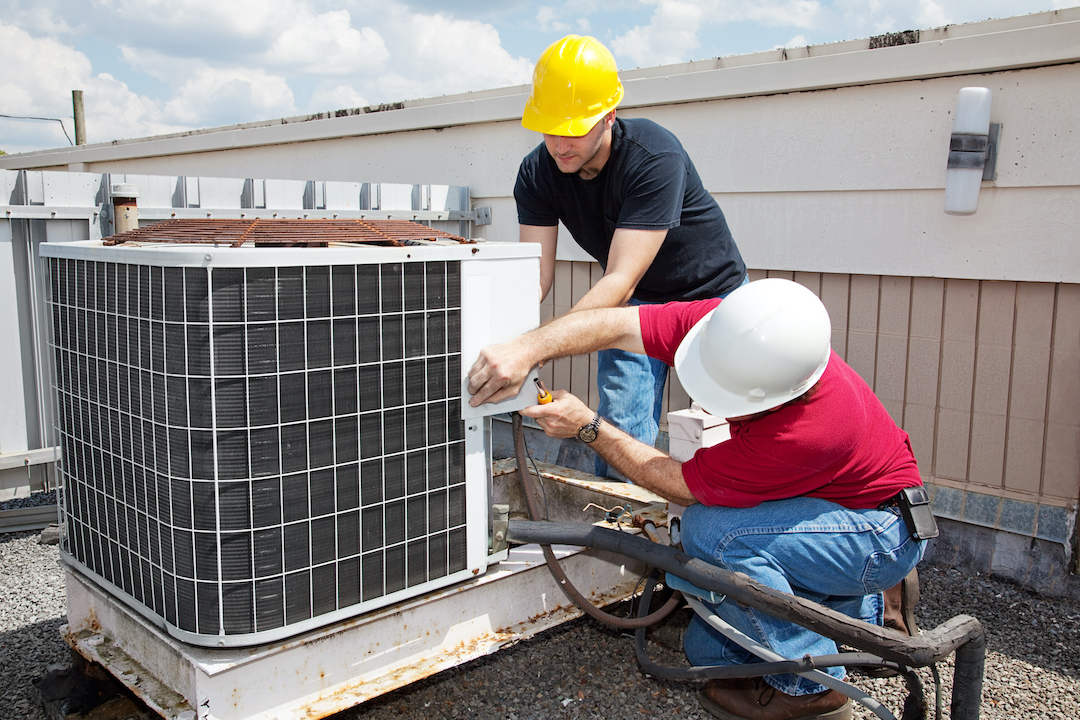Signs of a Quality heat pump installation ooltewah tn
Picking In Between a Heatpump and Heating System: Key Considerations for Your A/c Demands
When evaluating home heating alternatives for HVAC requires, the choice between a warm pump and a heater can be intricate. Each system provides unique benefits tailored to certain environments and energy efficiency objectives. Comprehending these distinctions is important for making an informed option. Key factors such as installation costs and environmental influence further make complex the option process. Which option really straightens with one's comfort and sustainability preferences? The adhering to sections will certainly check out these factors to consider thoroughly.
Recognizing Heat Pumps: How They Function and Their Advantages
While lots of homeowners take into consideration different heating alternatives, understanding exactly how heatpump function and their advantages can considerably influence their choice. Heat pumps run by moving warm instead than producing it. In the winter season, they remove warmth from the outside air or ground and move it indoors, while in the summertime, they reverse this process, cooling the home by getting rid of warm outside. This dual capability makes them versatile for year-round environment control.One of the primary advantages of warmth pumps is their energy performance. They use significantly less power contrasted to traditional furnace, potentially causing lower energy costs (heat pump service). Additionally, warmth pumps have a smaller carbon footprint, making them an environmentally friendly option. They also require much less maintenance than traditional systems, contributing to long-lasting expense financial savings. Generally, recognizing the mechanics and benefits of heatpump can aid property owners make informed choices concerning their heating and cooling down demands
Exploring Furnaces: Kinds, Operation, and Benefits
Heating systems are available in different kinds, including gas, electrical, and oil models, each with distinct functional mechanisms. Comprehending these distinctions is essential, as they affect efficiency and home heating efficiency. Furthermore, heating systems offer many benefits, such as constant heat result and integrity in cooler climates.
Sorts of Heaters
Heating systems can differ substantially in style and procedure, with heaters being a preferred selection amongst homeowners. There are a number of types of heaters, each utilizing various gas resources and innovations. Gas heaters are typical, leveraging natural gas to generate warm successfully. Electric heaters, on the other hand, make use of electrical resistance to generate heat, usually preferred for their uncomplicated installation. Oil heating systems, while much less usual, are reliable in areas with limited gas gain access to (ductless mini splits). Additionally, condensing heating systems optimize energy effectiveness by catching and recycling exhaust gases. Each type operates with a system of warm exchangers and ductwork to disperse warm air throughout a home. Recognizing the differences between these heating system kinds is necessary for educated a/c decisions
Benefits of Heaters
For house owners looking for trustworthy warmth throughout cold months, the advantages of heaters are significant. Heaters provide regular home heating, making sure also temperature levels throughout the home. They are particularly reliable in severe chilly, usually surpassing warm pumps in icy conditions. Numerous types, including gas, electric, and oil heaters, offer flexibility to fulfill diverse demands and preferences.Furnaces additionally often tend to have reduced initial installment costs contrasted to warm pumps, making them a more accessible option for numerous. Their durable style adds to a longer lifespan, with numerous units lasting over 15 years with appropriate upkeep. Furthermore, contemporary heaters are commonly outfitted with innovative innovation for boosted effectiveness, which can result in reduced power costs. Generally, heating systems continue to be a trustworthy option for efficient home heating.

Power Performance: Comparing Heat Pumps and Furnaces
When comparing energy efficiency between warmth pumps and furnaces, the Seasonal Power Effectiveness Ratio (SEER) plays an important role in figuring out efficiency. In addition, a functional cost evaluation reveals the long-lasting economic ramifications of each system. Understanding these elements can guide house owners in making notified decisions concerning their heating options.
Seasonal Energy Effectiveness Ratio
Energy efficiency plays a vital role in the decision-making process between warm pumps and furnaces, especially when considering the Seasonal Power Effectiveness Ratio (SEER) This statistics procedures the cooling performance of warmth pumps over an entire air conditioning season, providing a standard method to assess efficiency. Higher SEER scores indicate greater power performance, equating to reduced energy usage and decreased energy costs. On the other hand, heaters are commonly analyzed using the Annual Gas Utilization Efficiency (AFUE) ranking, which reflects heating performance. When contrasting these two systems, home owners need to focus on SEER rankings for warmth pumps, as they directly effect total energy savings and environmental sustainability. An extensive understanding of SEER can especially affect the long-lasting satisfaction and cost-effectiveness of the picked heating and cooling service.
Operational Cost Analysis
Comprehending the functional prices connected with heat pumps and heating systems is vital for property owners assessing their choices. Heatpump generally use greater power effectiveness, converting electric power right into heat with marginal waste. This leads to lower monthly utility costs, especially in moderate environments. On the other hand, conventional furnaces, especially gas versions, might have reduced in advance prices but can sustain greater operational expenses with time because of fuel rates and performance ratings.Moreover, heatpump can operate as both home heating and cooling systems, potentially minimizing the requirement for separate a/c devices. While first investments for heat pumps may be higher, their long-lasting savings in energy effectiveness can make them a more affordable choice for several houses. Mindful evaluation of local energy rates is necessary to figure out the ideal option.
Installation Prices: What to Anticipate for each and every Heating System
Installation prices for furnace can vary substantially in between heatpump and heating find here systems, affecting home owners' decisions. Heat pumps normally have higher in advance setup expenses, usually varying from $3,500 to $8,000, depending upon the unit size and complexity of installment. This consists of the outside device, indoor handling system, and essential ductwork adjustments. On the other hand, furnaces often tend to have reduced initial costs, balancing between $2,500 and $6,000, which can be appealing for budget-conscious house owners. Installation expenditures can raise if comprehensive ductwork is required.Moreover, the choice of fuel kind for furnaces-- natural gas, propane, or electric-- can likewise influence installation expenses. While warm pumps provide power performance, their initial investment might hinder some customers. Eventually, evaluating installment costs alongside long-lasting cost savings and efficiency will assist home owners in making educated decisions regarding their home heating systems.
Environment Factors To Consider: Which System Carries Out Better in Your Location
How do environment conditions affect the effectiveness of furnace? The efficiency of warm pumps and furnaces can vary considerably depending on the regional environment. In moderate climates, heatpump stand out by efficiently transferring warm from the outdoors air, making them an energy-saving choice. Their effectiveness reduces in exceptionally chilly temperatures, where they might battle to extract sufficient heat. Alternatively, heaters, particularly gas versions, provide consistent and trustworthy warm regardless of outdoor conditions, making them better in colder regions.In locations that experience milder wintertimes, heatpump can run effectively year-round, offering both cooling and heating. On the other hand, areas with severe winters months often take advantage of the toughness of heaters. Ultimately, comprehending the regional environment is essential when making a decision between a warm pump and a heating system, as it straight affects their operational effectiveness and total efficiency.
Maintenance Demands: Long-Term Take Care Of Heat Pumps vs. Furnaces
While both warmth pumps and heating systems need regular upkeep to ensure peak performance, their details demands and care routines vary significantly. Heating systems normally require less constant attention, with yearly evaluations being sufficient to look for gas leakages, tidy filters, and evaluate general performance. Their easier layout commonly enables for uncomplicated repairs.In comparison, heatpump require biannual upkeep as a result of their double role in cooling and heating. This consists of cleansing coils, inspecting cooling agent levels, and making certain that both the outside and interior units operate at their finest. Additionally, warm pump maintenance usually includes more complex components, making expert maintenance essential.Neglecting upkeep can result in reduced efficiency and raised energy prices for both systems. Inevitably, house owners should think about these lasting care demands when choosing in between a warm pump and a furnace, as aggressive upkeep can extend the lifespan and efficiency of either system substantially.
Environmental Effect: Selecting a Sustainable Home Heating Alternative
The ecological influence of furnace is a critical evaluation for house owners looking for lasting options. Warm pumps are usually more energy-efficient than conventional heaters, as they transfer heat as opposed to create it, considerably lowering carbon emissions. By making site here use of renewable energy resources, such as geothermal or air-source warm pumps, homeowners can better minimize their eco-friendly footprint.On the various other hand, gas heaters emit greenhouse gases and add to air pollution, though they commonly give greater warmth output. Innovations in innovation have led to the development of high-efficiency heaters that decrease emissions.Ultimately, choosing a heating system entails considering performance against ecological effect. Homeowners are encouraged to mirror on regional power sources and motivations for eco-friendly systems, guaranteeing a choice that aligns with both personal comfort and environmental obligation. The choice affects not just immediate comfort but also long-term sustainability and environmental wellness.
Often Asked Questions
How Much Time Do Warm Pumps and Furnaces Usually Last?
The lifespan of warm pumps typically ranges from 15 to two decades, while furnaces can last between 15 to three decades. Routine upkeep considerably influences their durability and performance in supplying home heating solutions.
Can I Utilize a Warmth Pump in Incredibly Cold Climates?
Warm pumps can run in incredibly chilly environments, however their efficiency reduces as temperature levels drop. In such conditions, supplementary heating sources may be essential to maintain comfortable indoor temperatures and assure peak performance.

What Is the Sound Degree of Warm Pumps Versus Furnaces?
The sound degrees of heatpump and furnaces differ substantially. Usually, heatpump operate even more quietly than traditional heaters, making them better for those sensitive to appear, while heating systems may create louder functional noises throughout heating cycles.
Are Warmth Pumps Suitable for Both Cooling And Heating?
Warm pumps are certainly suitable for both heating & cooling (heat pump installation ooltewah tn). They work by moving warm, providing reliable temperature control year-round, making them a versatile option for property owners looking for an all-in-one heating and cooling option
What Size Home Heating System Do I Required for My Home?
Determining the suitable dimension heating unit for a learn this here now home needs evaluating variables such as square video footage, insulation top quality, local climate, and the home's format. Consulting a specialist can guarantee a precise analysis and ideal convenience. Warmth pumps usually supply higher energy performance, converting electrical energy right into warmth with marginal waste. In moderate environments, warmth pumps stand out by effectively moving warm from the outside air, making them an energy-saving choice. Conversely, heaters, especially gas versions, provide reputable and regular heat regardless of outside conditions, making them more effective in cooler regions.In locations that experience milder winters, warm pumps can operate properly year-round, providing both heating and cooling. Warm pumps are typically extra energy-efficient than traditional furnaces, as they transfer warm rather than produce it, greatly decreasing carbon emissions. By making use of sustainable power resources, such as air-source or geothermal heat pumps, homeowners can additionally reduce their eco-friendly footprint.On the various other hand, natural gas furnaces give off greenhouse gases and contribute to air contamination, though they often supply greater heat output.